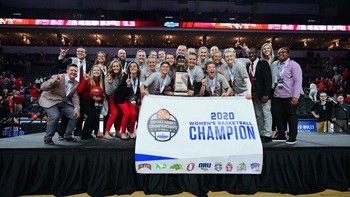Guest Lecturer LaMere Recounts History of Whiteclay
LaMere, a Winnebago tribal member, spent 18 years working to close the handful of liquor stores that sold millions of cans of beer each year right across the state line from South Dakota’s Pine Ridge Indian Reservation, which prohibits alcohol sales.
“The September 29 Supreme Court decision will go down as a red letter day. Not only for Lakota, but for all people. It will go down as a landmark case,” said LaMere. “But I can’t feel that way right now, neither can you or Nebraska or those who have been working on this solution for so long. You can’t feel it because you’re right in the middle of it.”
The lecture, entitled the “The Whiteclay Closure-Prophecy,” detailed LaMere’s journey to end the sale of alcohol in the border town of Whiteclay, Nebraska, which has been linked to numerous public health problems in the neighboring community of Pine Ridge only a few miles away.
LaMere estimated that 3,265,000 cans of beer had been prevented from being sold since the Nebraska Liquor Control Commission refused to reissue licenses and beer sellers stopped operating on April 29, 2016.
“When we brought this issue up 18 or 20 years ago, you were marginalized. I remember being much maligned – marginalized even by Native people. We’ve come a long way,” LaMere said.
LaMere recounted that his journey began 18 years earlier on July 3, 1999 after protests erupted in Pine Ridge after two community members were found murdered on the road between the two towns.
After being detained along with fellow activists like Russell Means, LaMere dedicated himself to ending the sale of alcohol in Whiteclay.
“It began with a single step. From here to here,” LaMere said. “That 7-0 [Supreme Court] vote didn’t happen because of legal minds or good hearts, it happened because of the incredible pressure put on by Lakota and Dakota people 18 years ago.”
LaMere urged the students in the room to be active in improving their communities, including stopping bootleggers from selling alcohol in Pine Ridge.
“On matters of Whiteclay, your family, your life, your community, your nation – are you going to be able to step from here to here?” LaMere asked. “Now, we don’t have to talk about policy, we don’t have to talk about personal responsibility, we don’t have to beg the question anymore.”
“We can’t leave it. I’m old enough where I can say this about life. Nothing is a coincidence,” LaMere said. “Someone in this room may be the actual hero of Whiteclay.”
LaMere ended his lecture with a reference to the famous Lakota elder Black Elk’s prophecy that after seven generations, all people will become one. “I did a little simple math. Perhaps this is the realization of the 7th generation prophecy shared by relatives like Black Elk.”
LaMere concluded by saying that now after the Supreme Court decision to end the sale of alcohol in Whiteclay, it was, “Time to get well.”
“Nothing changes unless someone is made to feel uncomfortable,” said LaMere. “And nothing changes unless you make yourself uncomfortable.”
The lecture was sponsored by the newly established Inclusive Science Initiative which is funded by a $1 million grant from the Howard Hughes Medical Institute. The program aims to enhance the participation and retention of underrepresented minorities in the natural sciences.


